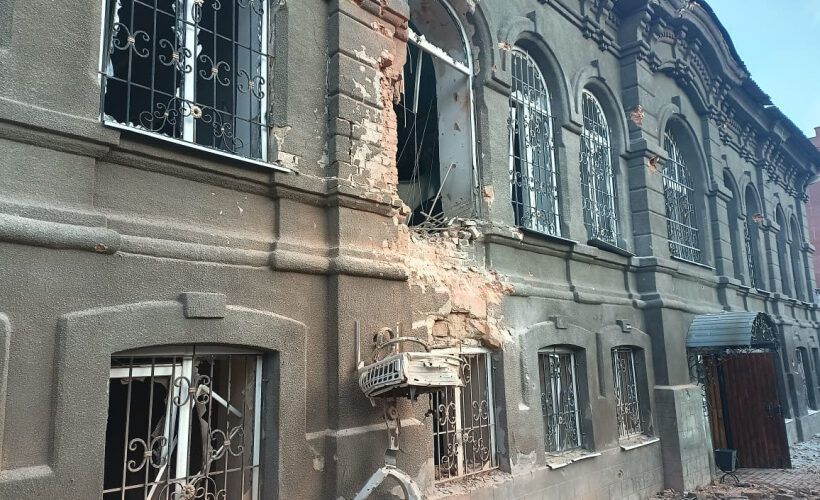Bakhmut, a small city in the Donbass, is the focus of a war of attrition between the Russian Wagner Group mercenaries and the Ukrainian Armed Forces. Judging by the current developments on the ground, the Wagner private military company has very high chances of eventually establishing full control over the place. But will that have a serious impact on the outcome of the Russian-Ukrainian conflict?
Wars are usually won by attrition and mass slaughter. But winning the battle, regardless of how “decisive” it may be, does not necessarily mean winning the war. If the Wagner Group manages to capture Bakhmut, such an outcome will undoubtedly have a positive impact for the Russian military ahead of its potential offensive that may come in the next few months. However, in the long-term, the battle for Bakhmut could prove to be yet another episode in a long war that Russia and Ukraine are expected to fight.
Some journalists and analysts call the battle for Bakhmut “the Verdun of the 21st century”, comparing the fighting in the Donbass to the Battle of Verdun in World War I, a bloody and intense battle between French and German forces that lasted from February to December 1916. Bakhmut is also often described as a “meat grinder”, given that both sides suffer enormously high casualties.
From the Ukrainian perspective, Bakhmut is an important symbol of the country’s resistance, just like Mariupol was in the spring of 2022. Given that Russia, back then, agreed to “evacuate” the Azov fighters from Mariupol, and later exchange them for pro-Kremlin Ukrainian oligarch Viktor Medvedchuk, it is entirely possible that Moscow – in case the Wagner Group manages to cut off a ground line of communication between Bakhmut and Kostyantynivka, and leave the Ukrainian forces encircled – will again agree to create a “humanitarian corridor” allowing the Ukrainian forces to escape death. Thus, even if the Ukrainian troops abandon the city, Bakhmut will remain another symbol of their brave struggle against the Russian invaders.
From the Russian perspective, using a frontal assault military tactics to seize the city that does not have any strategic importance, makes zero sense. Such a suicidal move has resulted in extremely high losses for the Wagner Group, whose fighters are mostly Russian prisoners who were offered amnesty in return for fighting in Ukraine. Even if the Wagner forces manage to capture Bakhmut, that will unlikely change the course of the war. Moreover, it is rather debatable whether the control of Bakhmut will give Russia a platform to launch a broader offensive in other parts of the Donbass. The Ukrainian military is already building new defensive lines in surrounding villages, towns and cities, which means that the Wagner Group, or the regular Russian military, will again have to spend months trying to capture new Ukrainian positions.
In other words, seizing Bakhmut will not help Russia achieve any of its strategic goals in Ukraine. A tactical victory in the battle for Bakhmut can never compensate territorial loses Russia suffered following its humiliating withdrawal from the Kyiv, Chernihiv, Sumy and Kharkiv regions, as well as from Kherson – the only Ukrainian administrative center it managed to capture in early days of war. On the other hand, a full control over Bakhmut could, at least to a certain extranet, boost Russian troops’ morale, but the problem for Moscow is that the Russian military unlikely has capacity to successfully conduct any major offensives.
Rumors are flying that the Russian army is expected to prioritize taking the whole of the eastern Donbass, as well as to launch offensives in the south of Ukraine, which are territories that are well fortified by the Ukrainian Armed Forces. However, British Intelligence remains rather sceptical about Russia’s military capabilities, given that Moscow does not have enough forces in Ukraine to significantly affect the war within weeks. Thus, for the time being, the Kremlin, through the Wagner Group, will likely continue using frontal assault tactics in the Donbass, which will bring Russia rather modest progress on the ground, and extremely high losses.
Meanwhile, the Western countries will continue supplying Ukraine with all kinds of weapons, which will allow the Eastern European nation to prepare for bloody battles that are expected to take place around summer. Ukraine seems to be “buying time” in Bakhmut, while mobilizing troops to launch major offensives elsewhere, most likely in the south, aiming to make a breakthrough to Crimea. The Kremlin, for its part, likely seeks to preserve the status quo and keep the annexed Ukrainian regions under its control. But with newly arrived Western military arsenal – including tanks, longer-range missiles, and potentially even fighter jets – as well as with hundreds of thousands of newly mobilized soldiers ready to fight, Ukraine will soon be in a position to change the course of the war.
Image: dn.gov.ua

